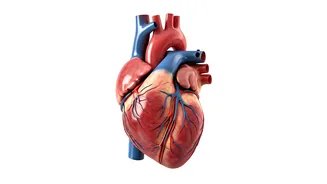Steer Clear of
A heart surgeon emphasizes several critical areas to pay attention to for people over 30 to promote heart health. First and foremost, smoking and vaping
are detrimental to cardiovascular health. These habits introduce harmful chemicals into the body, causing damage to blood vessels and increasing the risk of heart disease. It's crucial to quit these activities immediately. Secondly, it is important to reconsider your eating habits and focus on balanced, nutritious meals. This involves making informed food choices. Prioritizing fresh fruits, vegetables, lean proteins, and whole grains is a good starting point. Avoid excessive consumption of processed foods, saturated fats, and sugars. This can lead to increased cholesterol levels and block the arteries. Regularly monitor your food intake and seek advice from dieticians to build a healthy eating plan.
Watch Your Diet
The focus should shift towards a well-rounded diet, as advocated by Harvard's healthy eating plate. This means making sure each meal contains a substantial amount of fruits and vegetables, which are rich in essential vitamins and minerals and protect against heart disease. Choose whole grains over refined carbohydrates to ensure fiber intake and maintain stable blood sugar levels. Selecting lean proteins like fish, poultry, beans, and nuts is a good way to maintain your heart’s health. Limit the consumption of red and processed meats. Incorporating healthy fats, such as those found in olive oil, avocados, and nuts, can also be beneficial. Pay attention to portion sizes to prevent overeating and maintain a healthy weight. By making smart dietary choices, individuals can substantially lower their risk of heart disease and foster overall well-being.
Stay Active Always
Physical activity plays a key role in maintaining cardiovascular health. Regular exercise strengthens the heart muscle and improves blood flow. Integrating moderate-intensity exercises, like brisk walking, cycling, or swimming, for at least 150 minutes per week, or vigorous-intensity exercises, such as running or high-intensity interval training (HIIT), for at least 75 minutes per week, can yield significant advantages. Exercise helps regulate blood pressure, reduces LDL cholesterol (the ‘bad’ cholesterol), and boosts HDL cholesterol (the ‘good’ cholesterol). It also helps manage weight, which is an important factor in heart health. Incorporate movement into your daily routine; use the stairs instead of the elevator, or take short walks during breaks at work. Find activities you enjoy to enhance adherence to your exercise routine.
Reduce Stress Levels
Chronic stress has detrimental effects on the heart. It can elevate blood pressure, increase inflammation, and contribute to the development of heart disease. Finding healthy ways to manage and reduce stress is crucial. Practicing relaxation techniques, such as deep breathing, meditation, or yoga, can help calm the mind and body. Engage in activities you enjoy, like spending time in nature, reading, or pursuing hobbies. Maintain strong social connections; spending time with loved ones can provide emotional support and reduce stress. If you feel overwhelmed, consider seeking professional help from a therapist or counselor. They can offer guidance and tools to help you manage stress effectively. Recognize triggers and make healthy adjustments. For example, staying in high-stress relationships or situations increases the risk of heart disease.





















